More than a thousand livestock producers in Ecuador's Amazon region received non-monetary incentives
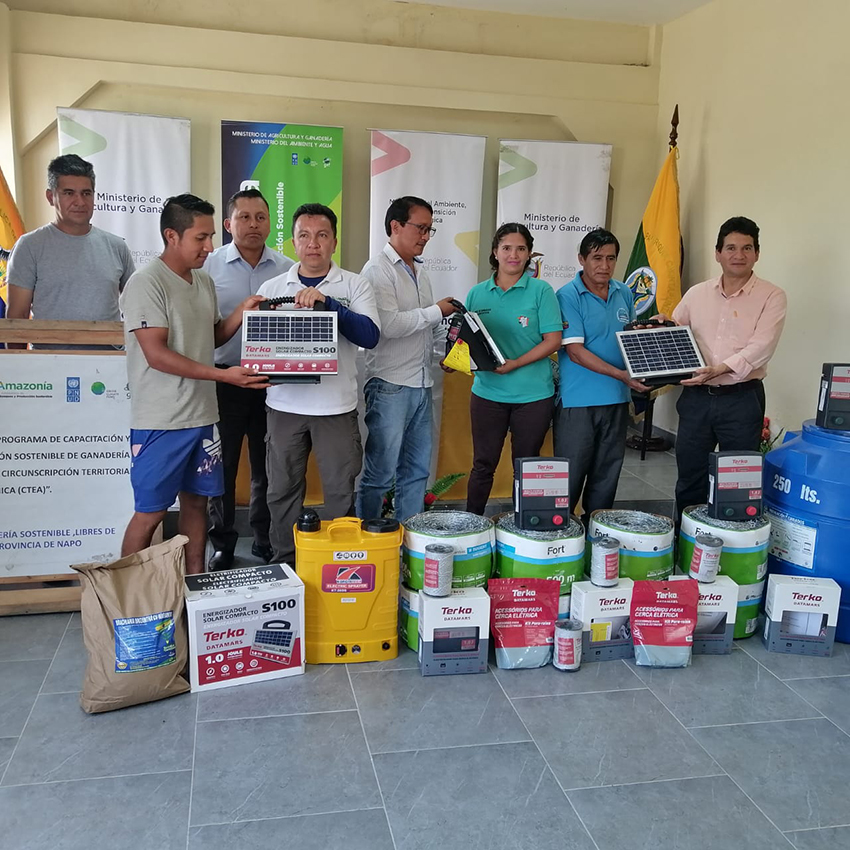
- The incentives will allow them to implement on their farms good practices of sustainable livestock farming, which they have learned through field schools.
August 16, 2022. On August 2, 1704 producers from the 101 Sustainable Livestock Field Schools benefited after receiving non-monetary incentives to develop what they learned during the five learning modules of the Field Schools (ECA) taught by CATIE (Tropical Agricultural Research and Higher Education Center), within the framework of the PROAmazonia program, implemented by the Ministry of Environment, Water and Ecological Transition (MAATE, its Spanish acronym) and the Ministry of Agriculture and Livestock (MAG, its Spanish acronym), with support from the United Nations Development Program (UNDP), and financing from the Green Climate Fund (GCF) and the Global Environment Facility (GEF).
With these incentives, the producers (38% women and 62% men) will be able to apply planning on their farms, keep productive, reproductive and sanitary records, establish fodder banks, implement rotational grazing and manage ecosystem services; aspects that they have learned through the training received in the ECAs.
Producers from the provinces of Sucumbíos, Orellana, Napo, Morona Santiago and Zamora Chinchipe have been involved in these FFS (cycle 1 2021).
The definition of the incentives was a participatory process, where the producers were the main responsible parties, after an analysis of the farm plans, from which three lines of investment were established: improved pastures, fodder banks and rotational grazing.
Among the inputs delivered were: grass seed, fumigation pumps, silage tanks, solar panels with solar impeller and accessories, solar impellers with accessories, and rolls of barbed and smooth wire.
It is expected that by December 2022, the ECAs that were formed in cycle 2 will receive monetary inputs, with the aim of intensifying production on their livestock farms in a sustainable and environmentally friendly manner.
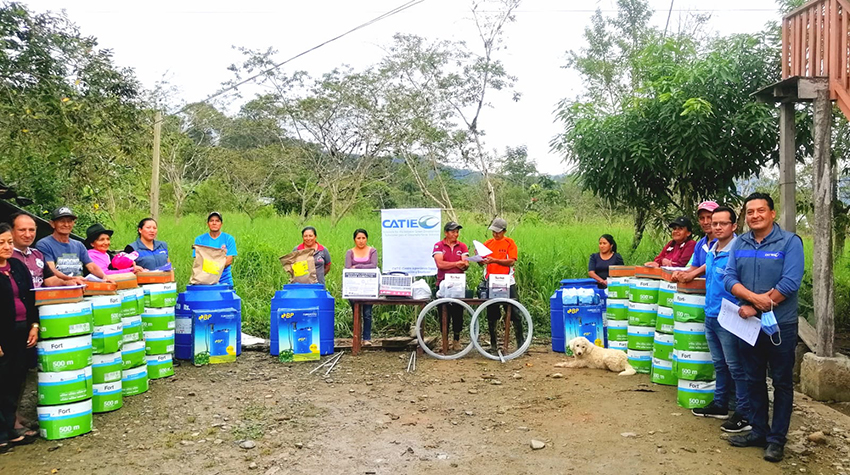
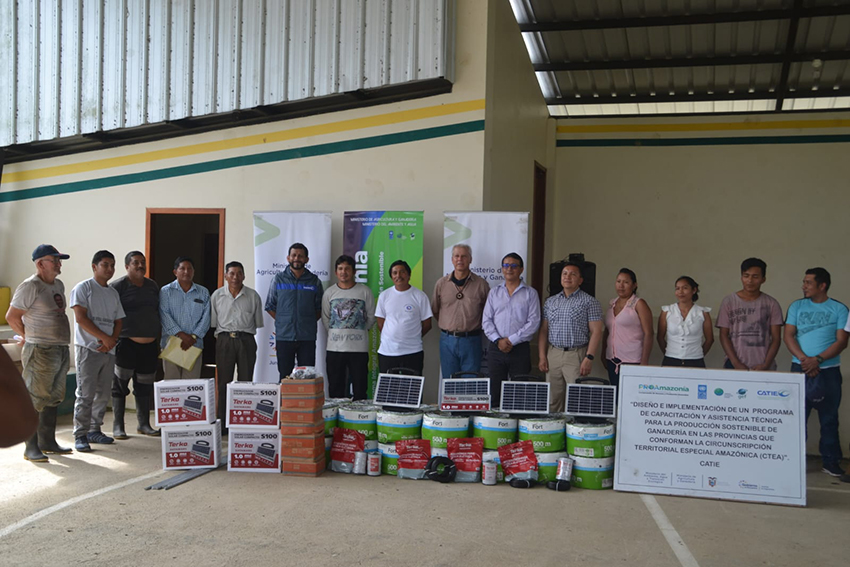
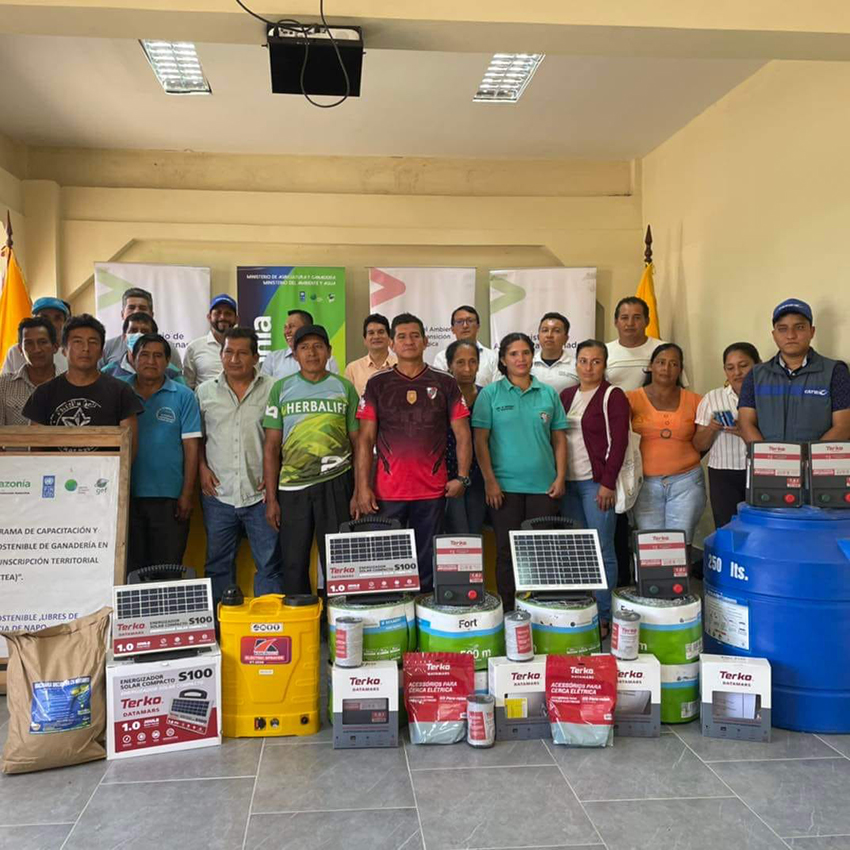
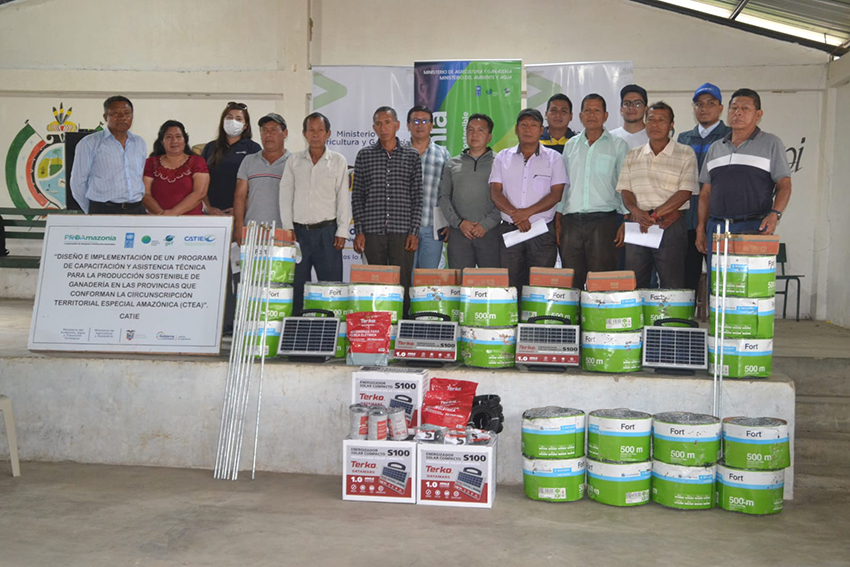
More information:
Santiago Garzón Proaño
School Field Coordinator, Ecuador Coordinador
Livestock and Environmental Management Unit
CATIE
Written by::
Karla Salazar Leiva
Communications Officer
Information Technology and Communication
CATIE



